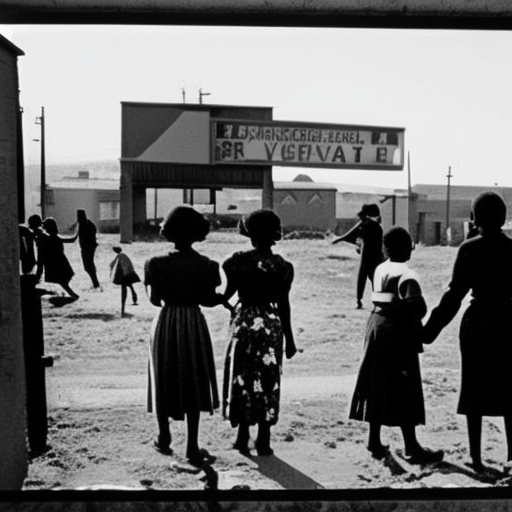Soweto Uprising: A Turning Point in South African History
The Soweto uprising, also known as the June 16th Uprising, was a pivotal event in the history of South Africa’s struggle against apartheid. It occurred on June 16, 1976, in the township of Soweto, near Johannesburg. The uprising was sparked by the introduction of the Afrikaans language as the medium of instruction in black schools, which was seen as a symbol of the oppressive apartheid regime.
The Background: Apartheid and Education
Under apartheid, the South African government enforced a policy of racial segregation and discrimination. Black people were subjected to systemic oppression and denied basic rights, including access to quality education. The Bantu Education Act of 1953 further entrenched this inequality by providing inferior education to black students.
In 1974, the government announced that Afrikaans would be used as the language of instruction in black schools, alongside English. This decision was met with widespread resistance from students, teachers, and parents who saw it as an attempt to further marginalize black education and culture.
The Spark: The Student Protests
On the morning of June 16, 1976, thousands of black students in Soweto gathered for a peaceful protest against the compulsory use of Afrikaans in their schools. The protest was organized by the South African Students Movement’s Action Committee (SASM-AC), a student-led organization that had been mobilizing against the use of Afrikaans for months.
As the students marched through the streets, they were met with a heavy police presence. The police fired tear gas and rubber bullets to disperse the crowd, but the students stood their ground, chanting slogans and singing protest songs. The situation quickly escalated, and the police resorted to live ammunition.
The Tragedy: Violence and Repression
The police’s use of live ammunition resulted in the deaths of several students, including Hector Pieterson, a 13-year-old boy whose image being carried by another student became an iconic symbol of the uprising. The violence unleashed a wave of anger and resistance, with students retaliating by throwing stones and Molotov cocktails at the police.
The government responded to the uprising with brutal force, deploying the military and imposing a state of emergency. The security forces cracked down on protesters, arresting thousands of students and activists. The media blackout imposed by the government prevented the full extent of the violence from being reported, but news of the uprising spread across the country and the world.
The Aftermath: A Catalyst for Change
The Soweto uprising marked a turning point in the struggle against apartheid. It galvanized the anti-apartheid movement and brought international attention to the injustices of the regime. The images of police brutality and the stories of the students’ courage and determination inspired people around the world to take action against apartheid.
The uprising also led to a radicalization of the resistance movement within South Africa. The African National Congress (ANC) and other anti-apartheid organizations intensified their efforts to overthrow the apartheid government. The youth became a driving force in the struggle, with many joining underground movements and taking up arms against the regime.
In the years following the Soweto uprising, the apartheid government faced increasing pressure both domestically and internationally. The international community imposed economic sanctions on South Africa, and the anti-apartheid movement gained momentum. The Soweto uprising played a significant role in the eventual dismantling of apartheid and the establishment of a democratic South Africa.
In conclusion, the Soweto uprising was a watershed moment in South African history. It exposed the brutality of the apartheid regime, mobilized the resistance movement, and brought international attention to the struggle against apartheid. The bravery and sacrifice of the students who took part in the uprising will forever be remembered as a symbol of the fight for freedom and equality.












